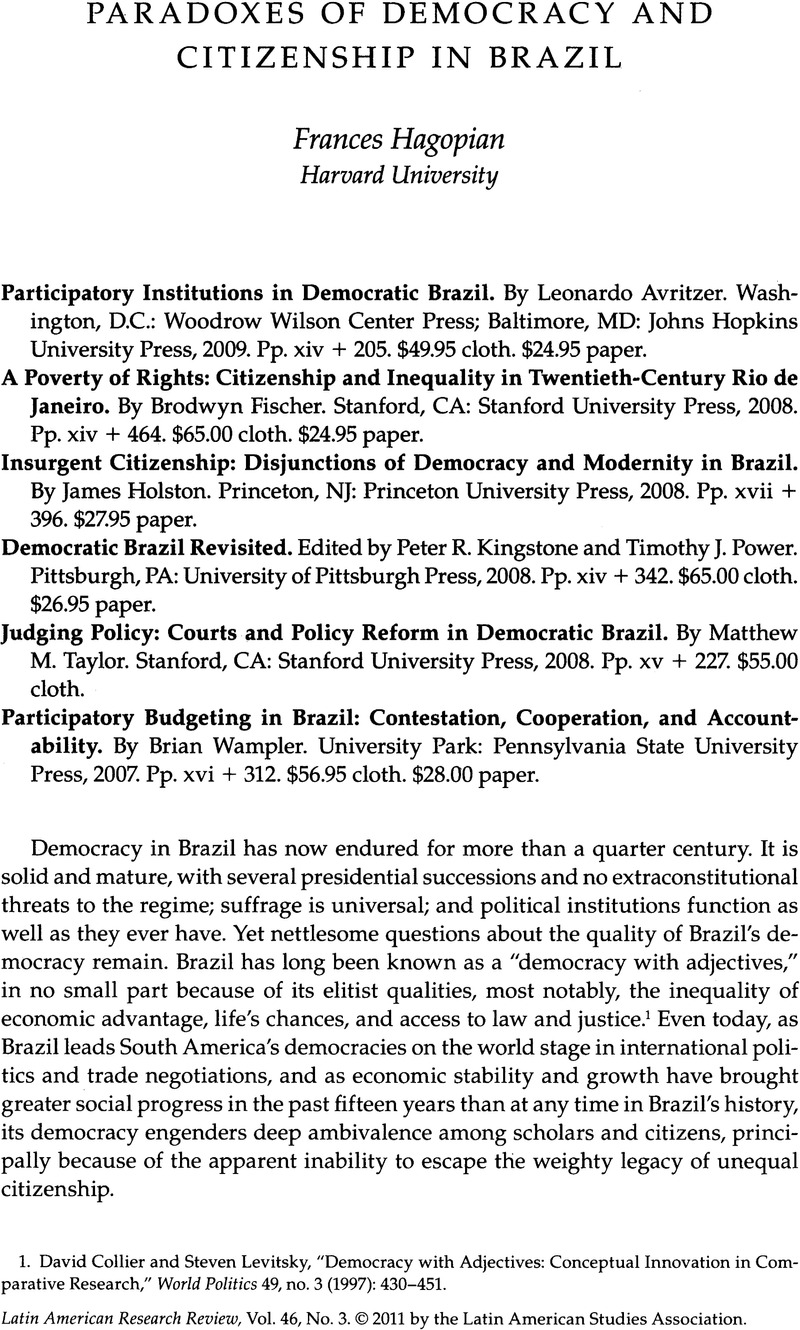Article contents
Paradoxes of Democracy and Citizenship in Brazil
Review products
Published online by Cambridge University Press: 05 September 2022
Abstract

- Type
- Review Essays
- Information
- Copyright
- Copyright © 2011 by the Latin American Studies Association
References
1. David Collier and Steven Levitsky, “Democracy with Adjectives: Conceptual Innovation in Comparative Research,” World Politics 49, no. 3 (1997): 430–451.
2. T. H. Marshall, “Citizenship and Social Class,” in Citizenship and Social Class, and Other Essays (Cambridge: Cambridge University Press, 1950), 1–85.
3. Peter R. Kingstone and Timothy J. Power, eds., Democratic Brazil: Actors, Institutions, and Processes (Pittsburgh, PA: University of Pittsburgh Press, 2000).
4. Janice Perlman, The Myth of Marginality: Urban Poverty and Politics in Rio de Janeiro (Berkeley: University of California Press, 1976). One of the most important books ever on the urban poor in Latin America, this study exploded the myth that the residents of favelas and illegal subdivisions are marginals, bandits, and rogues and demonstrated they were just ordinary, hardworking people who served critical functions in support of the urban economy.
5. Wanderley Guilherme dos Santos, Cidadania e justiça: A política social na ordem Brasileira (Rio de Janeiro: Editora Campus, 1979).
6. José Murilo de Carvalho, Cidadania no Brasil: O longo caminho (Rio de Janeiro: Civilização Brasileira, 2001).
7. See also Guillermo O'Donnell, “Polyarchies and the (Un)Rule of Law in Latin America: A Partial Conclusion,” in The Rule of Law and the Underprivileged in Latin America, edited by Juan Méndez, Guillermo O'Donnell, and Paulo Sérgio Pinheiro (Notre Dame, IN: University of Notre Dame Press, 1999), 303–337.
8. Brazilian political scientists studied voters in these same cities in 1974. See Fabio Wanderley Reis, ed., Os partidos e o regime: A lógica do processo eleitoral brasileiro (São Paulo: Símbolo, 1978).
9. Barry Ames, The Deadlock of Democracy in Brazil (Ann Arbor: University of Michigan Press, 2001). Also see Flavio Eduardo Silveira, A decisão do voto no Brasil (Porto Alegre: Editora Universitária da PUCRS, 1998).
- 6
- Cited by




